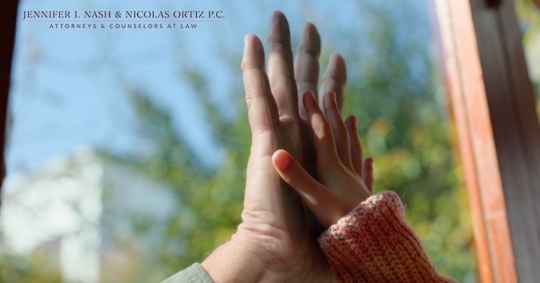Legal Protections for LGBTQ+ Parents in Custody and Family Law
LGBTQ+ parents deserve the same legal recognition and protection as any other family. But too often, they're forced to defend their rights in systems that still lag behind the realities of modern family life. Whether you’re navigating a custody dispute, pursuing adoption, or building a family through surrogacy, the law should stand as a safeguard, not a barrier. You deserve to feel safe, seen, and supported.
When parental rights are at stake, you need strong legal strategies and clear advocacy to protect your family.
Shifting Legal Ground in LGBTQ+ Family Law
Adoption and Legal Parenthood
Progress has been made. Adoption laws have opened up, and marriage equality has paved the way for stronger parental rights. Yet, barriers remain, especially for LGBTQ+ parents who aren’t married or who rely on non-biological paths to parenthood. Second-parent adoption, while vital, still varies dramatically from one state to the next. What should be a straightforward legal process can quickly become an uphill battle.
Protecting Your Parental Role
Even today, LGBTQ+ parents face bias in court—sometimes subtly, sometimes blatantly. Judges may rely too heavily on biological connections, discounting the deep relationships formed by non-biological parents. In these moments, the law can either reinforce a loving family bond or threaten to tear it apart.
Our job is to make sure your bond is respected and legally protected. That means being prepared, knowing your rights, and having legal advocates who understand how to assert them.
Real-World Challenges in Custody Disputes
Family Courts Aren’t Always Neutral
Despite progress, LGBTQ+ parents are still subjected to outdated assumptions. Some courts may still treat heterosexual parenting structures as the default, making it harder for LGBTQ+ parents to receive fair treatment in custody cases. These decisions impact your child’s future and your ability to stay in their life. Legal advocacy is not just helpful here—it’s critical.
Family Structures Outside the Norm
Polyamorous families, co-parenting outside marriage, and chosen families present valid forms of caregiving—but they don’t always get legal recognition. These families deserve the same stability as any other. Securing that stability often takes clear documentation, strategic legal action, and strong advocacy in court.
External Factors That Shape Outcomes
The Role of Public Opinion
Legal decisions don’t happen in a vacuum. As public attitudes become more accepting, courts are slowly catching up. But acceptance isn’t consistent, and it’s not guaranteed in every courtroom. Representation matters—both in the media and in legal proceedings. Courts must be reminded that LGBTQ+ parents are capable, loving, and worthy of full legal protection.
Advocacy and Community Support
Groups like Family Equality and the National Center for Lesbian Rights aren’t just political voices—they’re lifelines. They help connect parents to resources, attorneys, and community networks. If you’re feeling isolated or overwhelmed, know that these support systems are built to help you succeed—and so are we.
Legal Trends to Watch
From second-parent adoption reform to inclusive parenting statutes, family law is changing. Many of these reforms are being inspired by international examples—countries where LGBTQ+ family rights are better protected. The U.S. can learn from them. Staying informed on these changes ensures that LGBTQ+ parents stay ahead of legal threats to their families.
Technology and Parenthood
As reproductive technologies like surrogacy become more common, legal challenges are following close behind. Contracts, parental rights, and recognition vary depending on where you live. LGBTQ+ families using these options need airtight legal planning to avoid future custody conflicts or identity challenges.
Practical Legal Tools for LGBTQ+ Parents
Building a Strong Legal Foundation
Custody is hard enough without the added stress of discrimination. Keep legal documents updated—adoption records, parenting agreements, birth certificates—and ensure they reflect your intent as a parent. Work with lawyers who understand how to prepare for custody hearings and navigate family law in a way that affirms and protects your identity.
Supporting Your Emotional Well-Being
These legal battles can be emotionally draining. Get mental health support. Talk to affirming professionals. Engage your community. You shouldn’t have to carry this burden alone, and you don’t have to.
Call for Legal Support
At Jennifer I. Nash & Nicolas Ortiz, P.C., we believe in defending the rights of all families. If you're an LGBTQ+ parent facing legal uncertainty or in need of support during a custody dispute, we’re here to help you protect what matters most.
Call us today at (541) 243-0678 to speak with a team committed to securing justice and recognition for your family.

